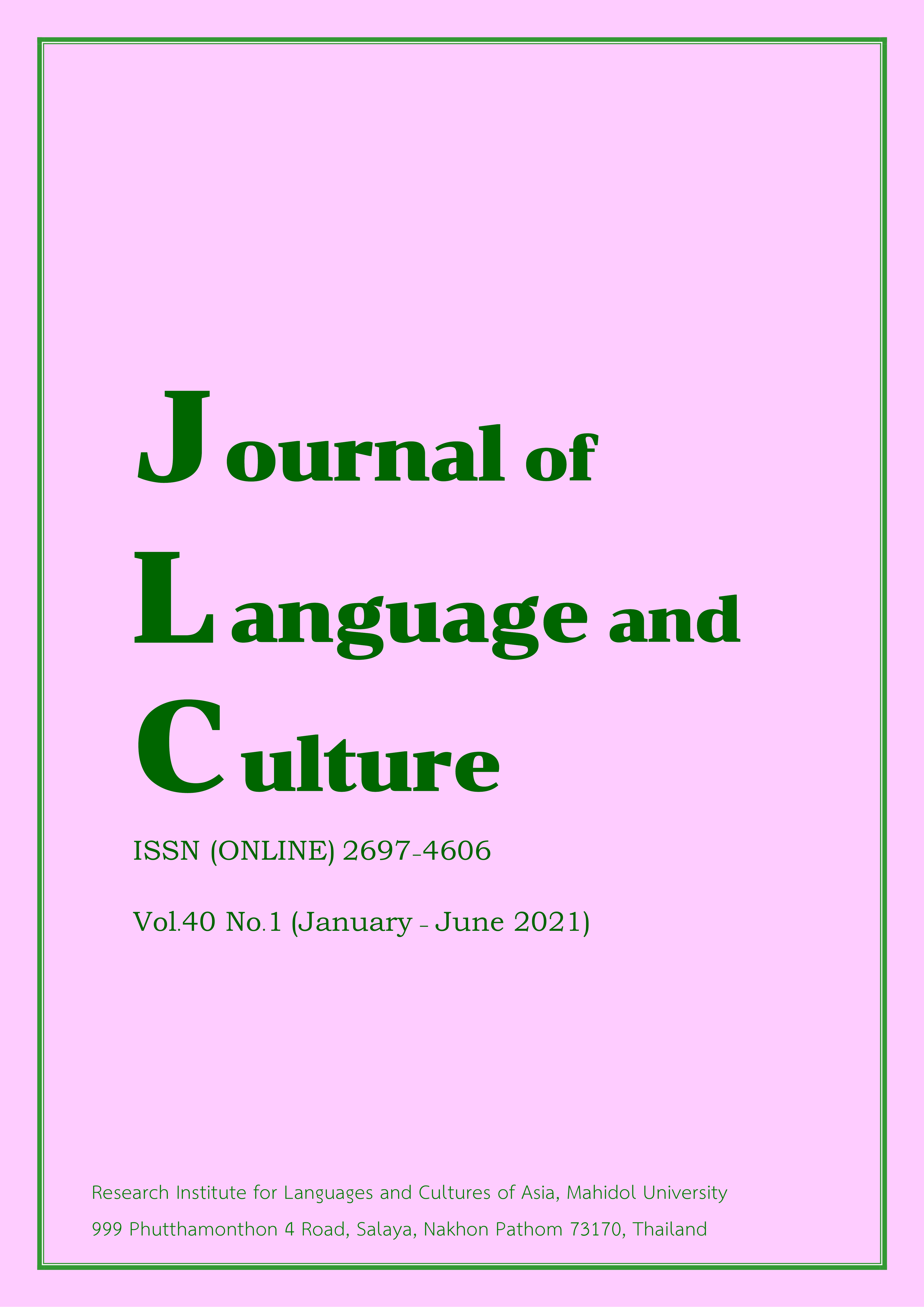Interculturality in action at an English conversation club in a Thai university: The use of cultural differences and spatial repertoire/Thai ‘habitat’ factor in the management of interaction
Main Article Content
Abstract
The current investigation explores interculturality by looking at the language practices of a culturally and linguistically diverse group of postgraduate students from China, Japan, Vietnam, the Philippines and Thailand. As members of an English conversation club at a Thai university, they met over a period of seven months to practise their English speaking skills, and in the process started to form close friendly relations.
Methodological inspiration draws from linguistic ethnography, which combines insights from discourse analysis and ethnography in order to account for the contextual boundedness and specificity of findings. Qualitative data consist of audio recordings and transcriptions of naturally occurring data, field notes from participant/non-participant observation, serendipitous interviews and online conversations via the participants’ social networking group.
Fine-grained analysis of the transcribed spoken data provide evidence showing: first, the participants’ use of cultural differences as a malleable, deployable resource to manage the exigencies of the ongoing talk; and second, the important role that the local setting, in this case a university in Thailand, plays in shaping the interaction. It is suggested that the participants accommodate to local norms and take up linguistic resources available in the place of interaction. This paper will show what social actors actually do with culture rather than what culture is. It is argued that an effective way to capture the otherwise fleeting moments of interculturality-in-action is through a turn-by-turn analysis of naturally occurring data.
Article Details
The articles featured in the Journal of Language and Culture (JLC) constitute academic works representing the viewpoints of the respective author(s). It is crucial to note that these opinions do not necessarily reflect those of the Editorial Board.
All articles published in JLC are released under the Creative Commons Attribution 4.0 International License (CC BY 4.0). This license grants permission for unrestricted use, distribution, and reproduction in any medium, provided proper credit is given to the original author(s) and the source.


